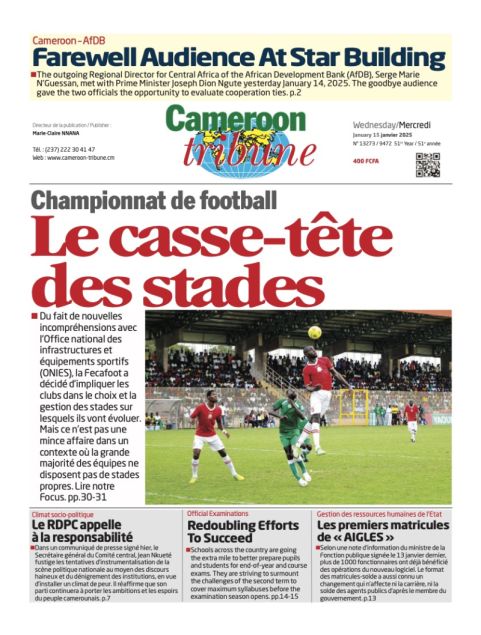Traditional Rulers : Know, Respect Your Limits
- Par Emmanuel
- 01 août 2024 10:01
- 0 Likes
The government of Cameroon through the various regulatory instruments has recognized the important role traditional authorities incarnated by traditional rulers play in preserving the country’s culture, traditions, maintenance of public order and the promotion of socio-economic development. In addition, with the passing of the laws on the General Code of Regional and Local Authorities and the Electoral Code, traditional rulers henceforth play an important role in the political life of the country as they are represented in the Regional Councils by their peers whom they elect. Those of the North West and South West Regions in particular that have special status are grouped under the Houses of Chiefs with specific missions.
However, the recognition of the vital role of traditional rulers does not, give them absolute powers to take whatever action within their areas of command because they have to function under the ambit of the law. Excesses in the exercise of their powers cannot be tolerated.
It is in this direction that the Minister of Territorial Administration, Atanga Nji Paul under whose Ministry the traditional chieftaincy institution is placed has set out to stamp out any disorder and blatant disrespect of regulations in forces by some traditional rulers. In a press release he issued on July 24, 2024 titled the hindrance to freedom of movement by some traditional rulers, the Minister hammered on the urgency of fighting against such unorthodox conduct and gave firm instructions to Regional Governors, Senior Divisional Officers and Subdivisional Officers. He talked of increasing number of cases brought to his attention concerning some traditional rulers who prohibit fellow citizens from staying in some localities. By this act, the Minister said, such traditional rulers hinder citizens from enjoying their fundamental right to freedom of movement.
The current legislative and regulatory measures in Cameroon do not confer on traditional rulers the powers to take measures in view of limiting the normal exercise of the right to freedom of movement. Limiting freedom of movement is the exclusive preserve of the President of the Republic, Minister of Territorial Administration and heads of administrative units. Such powers to restrict the movement of people and goods have to be exercised within the operation of maintaining public order. Minister Atanga Nji Paul has therefore instructed administrative authorities starting from Regional Governors right down to Subdivisional Officers to take the appropriate measures for the deviant behaviour to stop and to let traditional rulers know that they do not have such regulatory powers.
Chieftaincy institution in Cameroon is regulated by decree No. 77/245 of 15 July1977 as amended and supplemented by that of 2013. Traditional rulers have to know that as per the decrees, they are auxiliaries of the administration. With this role, the traditional rulers are entrusted with the responsibility of transmitting instructions from administrative authorities to their populations and ensuring that they are carried out. They also have to contribute under the supervision of the competent administrative authorities to the maintenance of law and order and to the economic, social and cultural development of their command units. Indeed, they are required to carry out any other mission entrusted to them by the administrative authority responsible for appointing them and taking an active part in their enthronement process.
It is indeed true that the traditional chieftaincy institution has evolved over time from the pre-colonial, colonial and to independence periods. The institution has equally evolved as Cameroon moved from the monolithic to multi-party systems with the decentralization option taken since the constitutional amendment of 1996 as the path to equitable development of Cameroon. What remains almost unchanged in all ethnic groups is the rule of traditional rulers as custodians of the customs and traditions of their people. In most ethnic groups, traditional rulers are the spiritual link between the living and the ancestors and more importantly have executive powers they exercise under the control of traditional legislative and judicial powers.
Each of the over 250 ethnic groups in Cameroon has specificities with regard to the preservation of their customs and traditions. They do have mechanisms to check excesses by both the traditional authorities and the natives. Many of these mechanisms are acceptable by the l...
Cet article complet est réservé aux abonnés
Déjà abonné ? Identifiez-vous >
Accédez en illimité à Cameroon Tribune Digital à partir de 26250 FCFA
Je M'abonne1 minute suffit pour vous abonner à Cameroon Tribune Digital !
- Votre numéro spécial cameroon-tribune en version numérique
- Des encarts
- Des appels d'offres exclusives
- D'avant-première (accès 24h avant la publication)
- Des éditions consultables sur tous supports (smartphone, tablettes, PC)











Commentaires